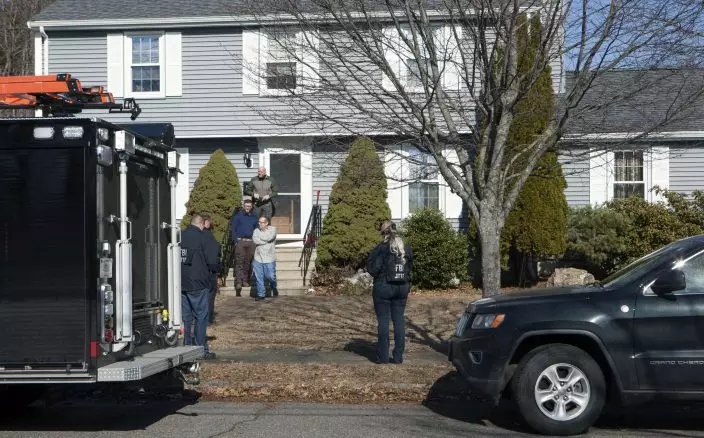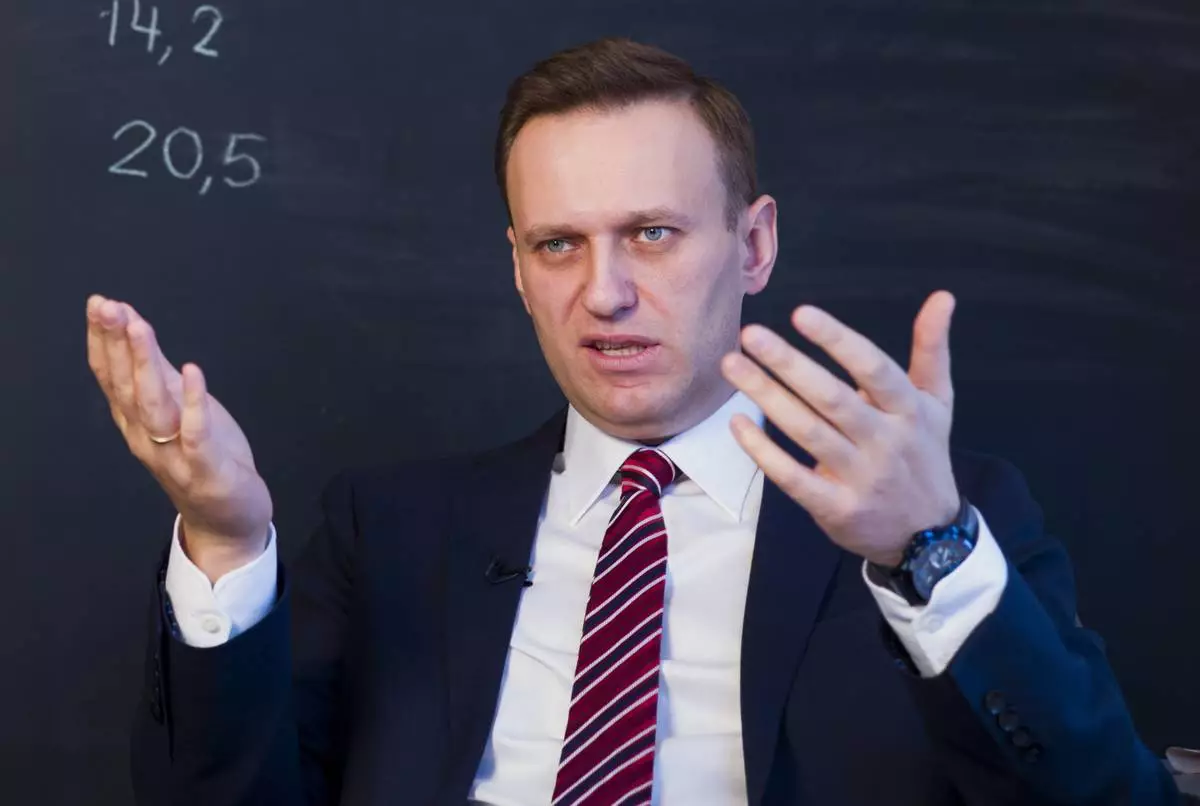Prosecutors are seeking three years in prison for a Massachusetts man who admitted to sending threatening letters filled with white powder to President Donald Trump's sons and others.
Daniel Frisiello is set to be sentenced Friday in Boston federal court. He pleaded guilty in October.
The letter Frisiello sent to Donald Trump Jr. was opened last year by his now-ex-wife, Vanessa. She was briefly hospitalized as a precaution after she reported feeling ill. The substance turned out to be nonhazardous.

FILE - In this March 1, 2018 file photo, the FBI's Joint Terrorism Task Force descended on a home in Beverly, Mass., where Daniel Frisiello lives with his parents. Prosecutors are seeking three years in prison for a Massachusetts man who admitted to sending threatening letters filled with white powder to President Donald Trump’s sons and others. Daniel Frisiello is set to be sentenced Friday, April 19, 2019, in Boston federal court. (Amy SweeneyThe Salem News via AP)
Other recipients of Frisiello's letters included Democratic U.S. Sen. Debbie Stabenow of Michigan.
Frisiello's lawyer is seeking five years of probation, including one year of home confinement. His lawyer says the 25-year-old has developmental delays, is autistic and would be susceptible to "exploitation, violence and isolation" in prison.
WASHINGTON (AP) — U.S. intelligence officials have determined that Russian President Vladimir Putin likely didn’t order the death of imprisoned opposition leader Alexei Navalny in February, according to an official familiar with the determination.
While U.S. officials believe Putin was ultimately responsible for the death of Navalny, who endured brutal conditions during his confinement, the intelligence community has found “no smoking gun” that Putin was aware of the timing of Navalny's death — which came soon before the Russian president's reelection — or directly ordered it, according to the official.
The official spoke on the condition of anonymity to discuss the sensitive matter.
Soon after Navalny’s death, U.S. President Joe Biden said Putin was ultimately responsible but did not accuse the Russian president of directly ordering it.
At the time, Biden said the U.S. did not know exactly what had happened to Navalny but that “there is no doubt” that his death “was the consequence of something that Putin and his thugs did.”
Navalny, 47, Russia’s best-known opposition politician and Putin’s most persistent foe, died Feb. 16 in a remote penal colony above the Arctic Circle while serving a 19-year sentence on extremism charges that he rejected as politically motivated.
He had been behind bars since January 2021 after returning to Russia from Germany, where he had been recovering from nerve-agent poisoning that he blamed on the Kremlin.
Russian officials have said only that Navalny died of natural causes and have vehemently denied involvement both in the poisoning and in his death.
In March, a month after Navalny’s death, Putin won a landslide reelection for a fifth term, an outcome that was never in doubt.
The Wall Street Journal first reported about the U.S. intelligence determination.

FILE - Russian opposition politician Alexei Navalny gestures while speaking during his interview to the Associated Press in Moscow, Russia on Dec. 18, 2017. U.S. intelligence officials have determined that Russian President Vladimir Putin likely didn't order the death of Navalny, the imprisoned opposition leader, in February of 2024. An official says the U.S. intelligence community has found "no smoking gun" that Putin was aware of the timing of Navalny's death or directly ordered it. (AP Photo/Alexander Zemlianichenko, File)











